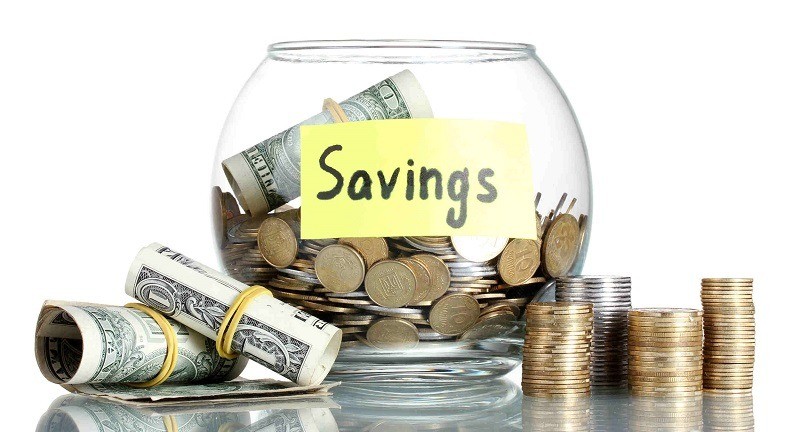What Are The Financial Benefits of Minimalist Living Practices?
In the period we live in, the consumption frenzy includes goods rather than houses or people. Closets are full of unworn clothes and rooms are full of unused items.
While it used to be criticized for throwing away broken items instead of repairing them, now we throw away items without even waiting for them to break down. For those who do not want to throw them away, there are hundreds of mobile applications and social media accounts where second-hand products are sold.
As people grew tired of the crowd, minimalism ceased to be an art movement and turned into a way of life. To save time for the modest lives of the richest people around the world, famous faces who only have the same color t-shirt in their closets are now given more rights.
People who have a good income but have difficulty paying their credit cards or cannot make it to the end of the month are trying to understand what is happening and come face to face with the items they used once and put aside in their homes.
It is during this moment of questioning that minimalism comes into play and drives people to decide to live more with less stuff. For this reason, more and more people have begun to adopt the less-is-more lifestyle.
How Does Minimalism Impact Financial Well-Being And Debt Reduction?

Minimalism does not mean collecting everything and throwing it away. The ability to say no to more than is needed. Therefore, with the minimalist lifestyle, we first remove the excess from our lives.
Although saving comes to mind at first, saving is one of the benefits that is far behind. The mess, excess, and disorder we are exposed to in every area due to city life originate from living spaces. First of all, this prevents loss of time.
Visual simplicity makes you feel less stressed. You do not have to look for a place for your electric wood saw that you bought with excitement 3 years ago and used it once and then forgot about, or when you need sewing thread, you do not waste time looking for thread among the parts of your sewing machine that you have used 5 times.
The calmness and peace brought by a tidy living space can therefore push the saving advantage far behind. Even though it is exciting, minimalism is a lifestyle that is not easy to adopt at once due to the age we live in.
Experts on this subject recommend starting with small steps first. It’s like trying to get through a week with a minimum of matching clothes instead of throwing your clothes out of the closet. Then, by extending this period, you can gradually get rid of the excess items in your closet that you no longer wear.
Then, we expand the area a little more and start organizing just one room. Again, at this stage, it is extremely important to ask yourself “Do I need this?” when buying something new.
The word needs forms the basis of the minimalism movement. Afterward, it gets a little easier. You can organize the items you need so that they are immediately accessible with the help of organizers, boxes, and shelves.
What Are Practical Steps To Embrace Minimalist Living For Financial Gain?
Let’s examine the practical steps to embrace minimalist living for financial gain:
- Well-being, Time and Happiness
A minimalist lifestyle; is based on well-being, time, and happiness. What matters is what you feel. It is the time you can devote to what you have, and finally, it is the scarcity of things that will overshadow your happiness.
- Money is a Means, Not an End
Before the invention of money, people settled everything by barter. So what did the invention of money change? For example, wouldn’t you exchange a kilo of rice or a kilo of potatoes for 10 Dollars?
This is how you should view money in every aspect of your life. Money is a tool that helps you achieve your financial goals. We are the ones who give it meaning.
- Experiences are Valuable
Time flows like water. What do you see when you close your eyes and look back? Those moments that make you smile and warm your heart, or those burgundy high-heeled shoes you bought when you didn’t need them and never wore them? Which one makes you happier to see? Think deeply about both and then answer my last question.
- Spend According to Your Values
Minimalists try to ensure that everything they buy increases their long-term satisfaction. Let it be a painting they will love forever or a plate of salad that will be good for both the eyes and the stomach.
- If It Doesn’t Bring Joy, Get Rid of It!
You can share or sell things that you no longer use and that do not make you happy. For example; DVD players were one of the electronic devices frequently used by many people years ago. But now, with the development of technology and movie/series platform memberships, it cannot be said that it is preferred much. When you put these types of items up for sale on various websites, you will free up space in your home and earn additional income.
It’s not just possessions that don’t bring joy. You can apply this principle in your social life.
- Manage Time
From morning exercise to coffee guests, people share every moment of their lives on social media. However, time is very valuable, so it is necessary to use it correctly and efficiently. For example; You can set limits for the time you spend on social media. You can make friends on these channels with people you like to stay in touch with.
Can You Share Examples of People Who Achieved Financial Freedom Through Minimalism?
Steve Jobs, Bill Gates, Mark Zuckerberg, and Barack Obama can be considered the most popular examples of people who achieved financial freedom through minimalism. Deciding what to wear every day, taking into account various factors such as weather, work, travel, environment, relatives, and family, takes a significant part of a person’s life.
A wardrobe called “Capsule Wardrobe” is proposed in compatible colors and styles, without having to worry about matching this to that for a long time. Celebrities such as Steve Jobs, Bill Gates, Mark Zuckerberg, and Barack Obama get rid of decision fatigue by using capsule wardrobes, at least in this area.
What Are The Emotional And Mental Benefits of Simplifying Your Lifestyle?
A minimalist lifestyle refers to a low-consumption lifestyle that focuses less on material possessions, that is, consciously sacrificing to make room for basic needs. Because people who adopt such a lifestyle consciously limit their spending and value environmental well-being, the minimalist lifestyle is generally characterized by need- and benefit-oriented consumption and represents a kind of oppositional movement against consumerism and materialism.
A minimalist life can be a solution to the financial burden that many people suffer from, knowingly or unknowingly. Because people with fewer assets will have to take care of fewer things and, in turn, have more space, time, and money.
How Can Minimalism Help Individuals Escape The Consumerism Trap?

Thanks to minimalist living methods, individuals can easily escape the consumerism trap. Minimalism has long made its way into workplaces. However, it’s not just about workplace decoration or reducing desk clutter.
In the business context, minimalism is defined as “working in a way that brings peace, meaning, and joy to life.” It means setting new and different priorities and prioritizing basic things like quality over quantity, finding more meaning in work, and a life career over a quick promotion or pay raise.
A minimalist business life cannot be defined in any specific way. Since working in a simple job is more related to the mentality a person has in business life, minimalists work in flexible jobs in workplaces that respect their boundaries.
The aim is to gain more space, more range of motion, more freedom through more minimalism and frugality in the workplace, and as a result, more happiness. In this case, minimalism brings a new focus on life goals and results in less responsibility, and less income, but also less overtime and less stress.
Concepts such as job sharing or paid leave also originate from the idea of minimalism. Therefore, it is suggested that focusing on less but better and being a professional minimalist may be one of the rules of the new work order that all employees want to achieve.
See you in the next post,
Anil UZUN
